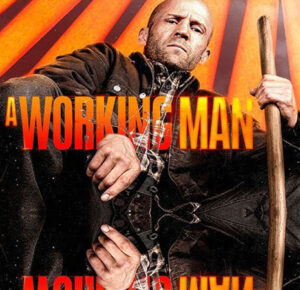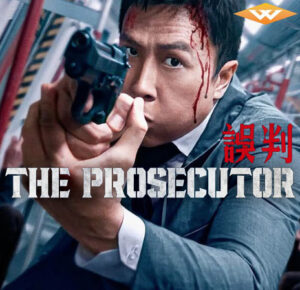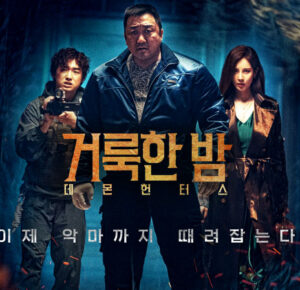
“Switch” Chinese Theatrical Poster
Director: Jay Sun
Writer: Jay Sun
Cast: Andy Lau, Tong Dawei, Zhang Jing Chu, Lin Chi-ling, Siqin Gaowa, Liu Yu Qi, Wu Xiu Bo
Running Time: 122 min.
By Paul Bramhall
With China quickly becoming one of the biggest movie markets in the world, the temptation to appeal to the sizable Chinese box office has seen a lot of the studios adjusting their output for the audience there. Hollywood co-productions are becoming increasingly common, such as Iron Man 3 and Transformers 4, and even countries like South Korea are getting in on the act with blockbusters like The Thieves. While these movies have proven to be successful crowd pleasers on both sides of the world, China’s own movie industry is still very much one that’s finding its feet.
Unlike its troublesome cousin Hong Kong, which had an industry which gave us stars like Jackie Chan, Chow Yun Fat, and countless others in movies now considered to be classics, the mainland hasn’t quite been so successful. While China has always been making movies in some form or another, never has it aimed to produce the Hollywood style blockbusters like it does today. The problem is however, unlike Hong Kong, which quickly developed a tight knit movie industry, China has yet to really develop its local talent.
So we end up with wannabe action blockbusters like Urban Games, co-directed by a Hollywood stunt co-coordinator about extreme sports, and Ameera, some science fiction nonsense with Collin Chou. If you haven’t heard of these movies, then it shouldn’t be a surprise, they’re awful. Most of these Chinese productions don’t even get a showing in Hong Kong, almost as if the former British colony is embarrassed to now be part of a bigger land mass which creates such cinematic atrocities. Bad scripts, terrible CGI, ropey acting, and lackluster direction – these are the defining qualities of today’s Chinese action cinema.
Thankfully though, China seems to be aware of its own cinematic shortcomings, so in 2013, it announced Switch! Armed with a whopping budget of 160+ million RMB, the movie would be a globe trotting action adventure following a secret agent, styled after 007, and the production had even secured Hong Kong megastar Andy Lau in the title roll. To be filmed in China, Japan, Taiwan, and Dubai, Switch was going to be the movie that put China blockbuster filmmaking on the map. Somewhere along the way though, something went very wrong, and while not everyone will have seen Switch, almost everyone came to know it as “the movie that Andy Lau apologized for.” A comment he passed during a press junket for his movie Blind Detective.
An actor apologizing for a movie they starred in is never a good sign, and Switch became somewhat of a hot topic in the Chinese press. It was slammed even by local reviews, however it still found a suitably massive audience in the Chinese public. It seemed to be proof perfect that the general cinema going audience in China didn’t care if the movie they were going to see was good or not, just the fact that it was a movie seemed enough to warrant a trip to the local multiplex. I have to confess that I’m also part of that audience, as I gradually found curiosity getting the better of me, and so it was – I ended up watching Switch.
Let’s just get it out there from the word go – Switch is astoundingly bad, it’s the type of bad that not even a legion of bad reviews can prepare you for. However at the same time, it also manages to achieve that rare level of when a movie becomes so unbelievably awful, it actually passes into the realm of so bad it’s good. From the moment a shoddy CGI plane bursts onto the screen in the opening shot, to the laughably lame title sequence – which looks like a poorly rendered CGI practice run for an action scene, rather than the Bond-esque feel it’s trying to invoke – there’s a distinct feeling that the next 2 hours is going to be a journey into entertainingly crap cinema.
The plot revolves around an exhibition which is going to take place in a couple of weeks, at which the ancient painting, ‘Dwelling in the Fuchan Mountains’, will be displayed. The painting comes in two halves, with a British arms dealer stealing one of them, and a Japanese kingpin after the other. Will our hero Andy Lau be able to get both pieces of the painting together so that they can be shown to the general public in time!? Honestly, who cares!? Switch has the most strangely uninteresting plot I’ve come across in a long time, especially considering the bombastic nature of almost every scene. It’s a movie in which you have to constantly remind yourself – the highest thing at stake here is that the painting won’t be on public display at the exhibition.
The events which transpire around the retrieval of the painting though are interesting, and that’s what counts. Most of Lau’s trouble comes in the form of the Japanese kingpin, who is played by Tong Dawei, sporting a truly bizarre white wig. We’re introduced to Dawei as he lies on a table in his lair wearing only underwear, as scantily clad women sit around him fanning his body with feathers. Oh, other women are swinging from the roof performing gymnastic routines because, well, I have no idea. Nor do I have any idea why he’s in love with his main assassin because she reminds him of his mother, whose image is painted on one of the walls along with a giant fetus, several of them actually, plus there are giant hand sculptures everywhere, and a table that resembles a giant clock. Trust me, this is just scratching the surface.
It’s not long before Andy Lau starts looking as confused as the viewer. The main assassin falls in love with him, except he’s married, but at the same time seems to constantly return the assassins advances, at one point spraying his wife in the face with an unknown substance to knock her out. In another scene the assassin turns up while they’re having dinner together and pretends to be pregnant, because apparently all she’s ever wanted is to have Lau’s daughter, and after his wife storms off he simply laughs and has dinner with her instead. Coherent film making was not the order of the day here.
Other highlights include, but aren’t limited to – cringe worthy English line delivery from Caucasian ‘actors’ (that make the guys who turned up in early 90’s Hong Kong action movies seem Oscar worthy in comparison), a dwarf, a villainess who wears a cape, another character who carries her husbands ashes around in an hour glass, random faked deaths, and an orphan child who lives in a swamp (and also falls in love with Lau!). Oh, and it would be a crime not to mention the rollerblading waitress assassins. The scene they’re in deserves a special mention, as there’s a part in which they’re retreating from a building which is about to explode. When the explosion goes off they’re rollerblading towards the camera, before the blast propels them into the air, at which point they do a mid-air synchronized pose. Yes, a synchronized mid-air pose from a bomb blast.
Switch will hopefully be director Jay Sun’s first and last movie. As entertainingly horrendous as it is, at 2 hours long fatigue could well be a side effect for some viewers. Even when all is said and done, nothing really makes any sense, characters leave a scene in one location and enter the next in a completely different one, the constant globe trotting is bewildering rather than exciting, and nobody seems to make a single logical decision throughout the whole thing. For the morbidly curious out there, Switch awaits your viewing.
Paul Bramhall’s Rating: 2/10























Be the 1st to Comment